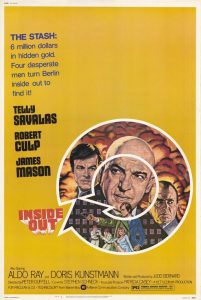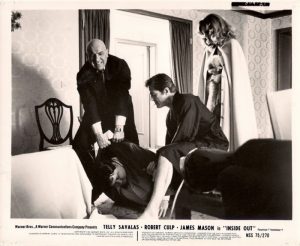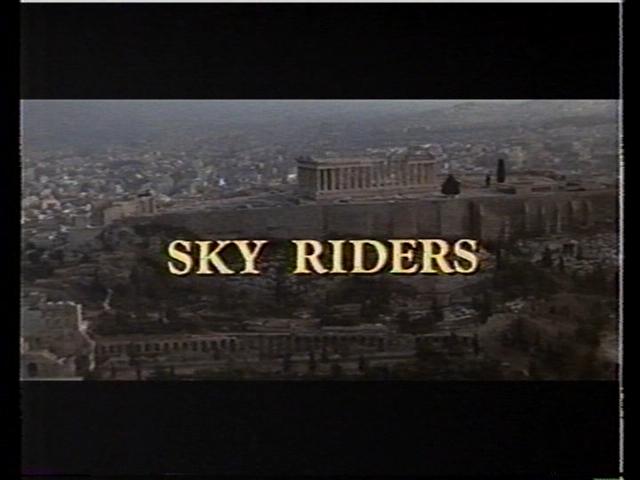
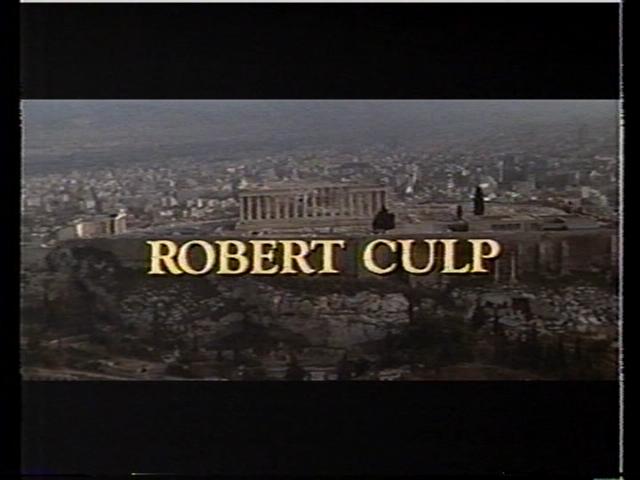
Originally released, 1976
**Contains spoilers**
Back when Culp material on YouTube was still pretty thin (2008/2009), I was pleasantly surprised to find this movie. Although the plot stretches things just a tad, it’s a good entertaining 90 minutes spent. Plus, I was knee deep in Maxwell Mania by the time I found this and I couldn’t help but see some brief flashes of Maxwell characteristics in Jonas Bracken. Very brief, mind you. The loose necktie and Culp’s particular vocalization in this thing are close to Maxwell (without the brassy language) and the fact that Bracken, for all his money and refined lifestyle, had no qualms about picking up a rifle and jumping into the fray with this thing. Maxwell woulda been proud.
Culp plays Jonas Bracken, an American multi-millionaire international businessman living in Greece, whose family is kidnapped by terrorists moments after he leaves the house for the day. Members of Bracken’s house staff are killed in the process and the kidnappers take off with his wife, Ellen (Susannah Yorke) and two children.
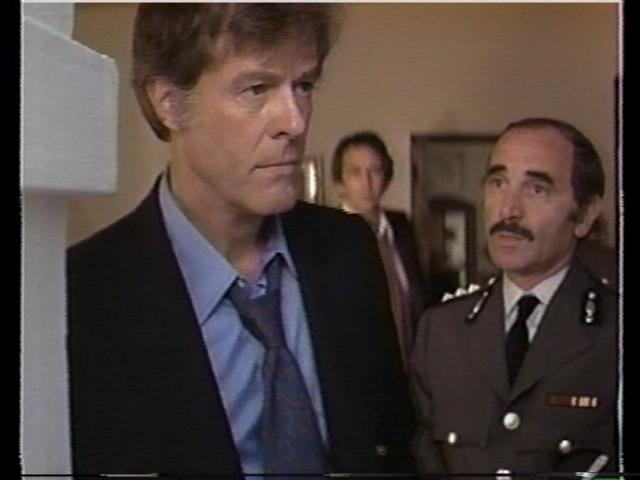
The police notify Bracken and immediately begin investigating, the lead cop being Inspector Nikolidis (Charles Aznavour). The kidnappers have left a two way radio at the house to communicate further instructions to Bracken. Bracken can only wait.
Meanwhile, Jim McAbe (James Coburn) is a black market smuggler of some sort who hears the news when he makes a delivery. Bracken’s son, turns out, is actually McAbe’s but McAbe hasn’t seen the child since he was a baby. He’s nonchalant about the news to the shady sea captain he’s dealing with but once he flies back to land, he goes to see Bracken.
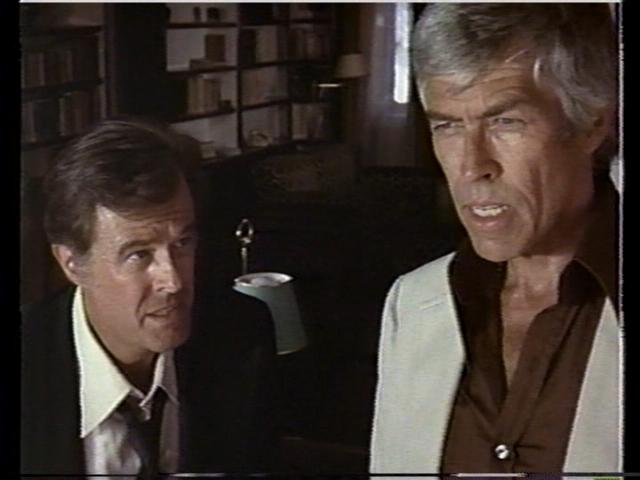
Obviously, he’s quite concerned about what has happened. If there’s any animosity between these two men, given one’s the current husband and the other is the ex, it doesn’t show. Jonas asks McAbe to stick around.
The terrorists have Ellen record a message to Jonas, explaining who they are and what their demands are. She tells Jonas that she and the children are okay and then lays out their demand: Five million dollars in 48 hours, otherwise the family will be executed. Jonas immediately goes to work trying to liquidate every holding and asset he’s got to come up with the $5 million.
When the terrorists contact Jonas again, with another recorded message from Ellen, they know he hasn’t raised all the money yet, but they take what he has gotten so far as a sign of good faith. She tells him that they will be contacting him again at a specific time with the two-way radio. When they do, they have a long laundry list of what they want him to spend the money on. Hundreds of guns and weapons with millions of rounds of ammunition. (Culp’s facial reactions are priceless during this scene – shock, disgust, anger – he runs the gamut).
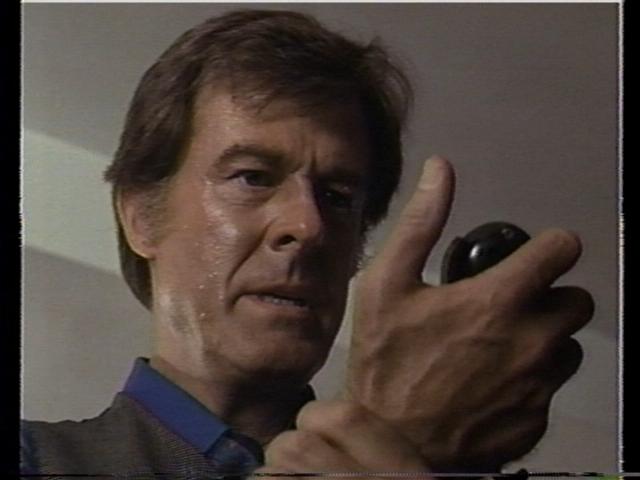
While the list is being rattled off, the police are trying to zero in on the radio signal. They do and trace it to a truck parked in what looks to be some kind of construction area on a hilltop. The police surround the truck and one of the officers, Dimitiri (the nephew of the Inspector Nikolidis) approaches the truck. He opens the doors and has just enough time to see the tape player equipment – and the bomb.
The explosion kills Dimitri and kills and wounds several other officers.
After this, Jonas gets a package in the mail. A note “to encourage you” and a roll of film negatives. He’s about to turn the note and the negatives over to the police when McAbe tells him not to. Instead they develop the film themselves and find a photo of Ellen and the children who appear okay. They also note what looks to be a painting of some kind behind them in the photo.
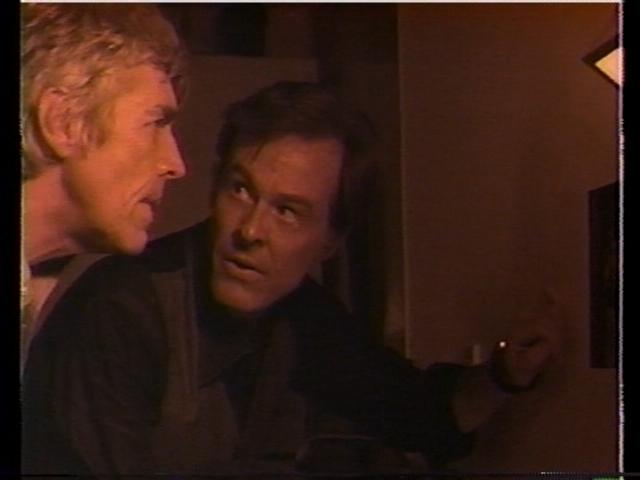
Jonas makes a couple of extra copies for McAbe who plans to get Ellen and the children back. McAbe shows the photo to an art historian/dealer that he knows. The dealer pinpoints what the painting is and knows where it is at: A long abandoned monastery that sits high on the mountains, with one road in and no other way to get there. McAbe checks it out and while doing his re-con of the place he figures there’s another way in. To fly.
Of course, he can’t get a plane in there, they’d hear him coming. But if he could get in quietly, like a bird, he’d have a chance. He enlists the help from some hang gliders to teach him how to fly one. Eventually he asks for their help in the whole caper.
Jonas, meanwhile, gets another radio call from the kidnappers who want to know how he is doing getting what they want. They remind him of the photos they sent him, which the police didn’t know about until now. Inspector Nikolidis, overhearing this transmission, asks to see the photos and then tells Jonas that he’s under arrest (for withholding evidence is my guess).
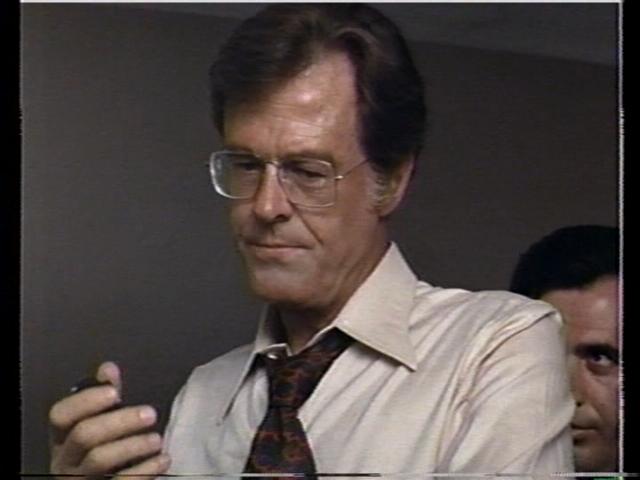
Meantime, the hang gliders decide to help McAbe.
At the police station, the police have traced the location of the terrorists hideout based on the photos. The Inspector plans to go after them the next day. Jonas would rather any police operation wait until he gets his family back by way of the exchange that they want (or by McAbe who, Jonas figures, is going to attempt to get them back). All the same though, Jonas fears if the terrorists get any idea of a rescue attempt to be made, his family will be killed.
The police have also been checking up on McAbe and learn that he has checked out of his hotel and met up with some other Americans. As a result of this news, the Inspector decides they will go after the family immediately.
Jonas again asks for the police to wait, but Inspector Nikolidis says no.
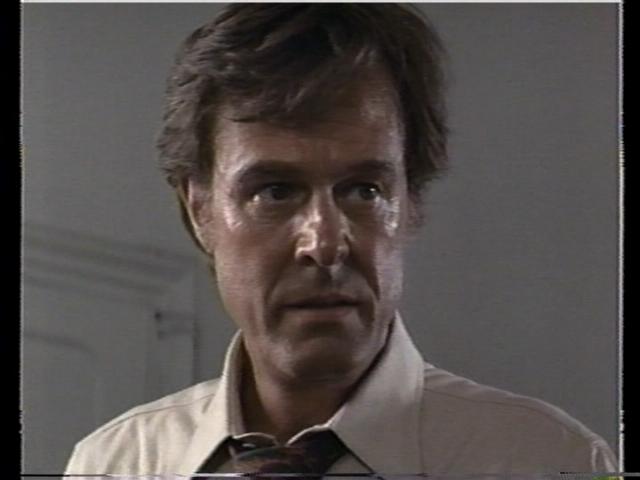
It’s a five hour drive to this monastery. McAbe and his troop of hang gliders are already there and they wait until nightfall to make their landing. The police, meantime, are on their way.
Under the cover of night, McAbe and his crew make it into the monastery and find Ellen and the children. They almost make it out clean but one of the terrorists spots them out a window (easily enough since it’s now morning). The monastery erupts into chaos and shooting with McAbe and everyone trying to get out and the police and Jonas, moving in.
And Jonas, by the way, is right smack in the middle of this thing. After spending the whole movie sitting and worrying, he was spoiling for action at this point. And may I say I’m GLAD they had Jonas smack in the middle of this thing and not sitting in a police car, with the occasional shot of him…sitting and worrying as he hears gunfire off in the distance. Man…
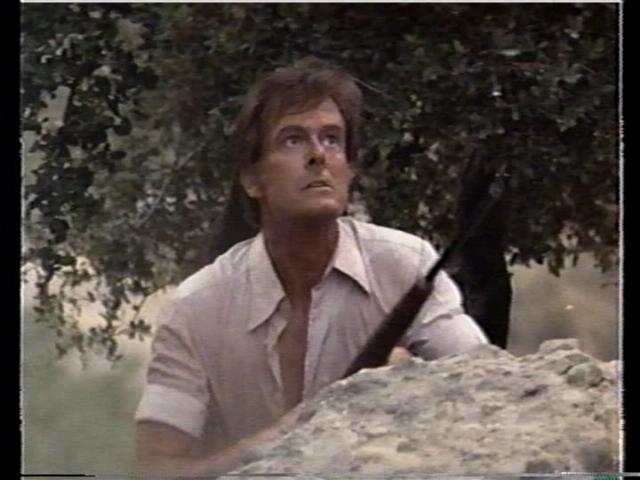
Meanwhile, the gilder pilots, Ellen and the children all get back to the gliders with McAbe staying behind to provide cover as everyone takes off. As they make their getaway, however, they end up in full view from the monastery. The terrorists fire shots, wounding a couple of the flyers but Ellen and the children are unscathed. Jonas and the police shoot at the terrorists to prevent them from shooting any more at the gliders.
The terrorists have one more card to play, a helicopter, and they use it to try to take down the gliders. They also try to take down McAbe but he merely grabs hold of one of the landing skids and hangs on for the ride. The gilder pilots suffer some wounds but manage to clear out with Ellen and the kids. McAbe shoots the rotor/transmission of the chopper forcing it to land.
The terrorists are defeated and Jonas is reunited with his family again.
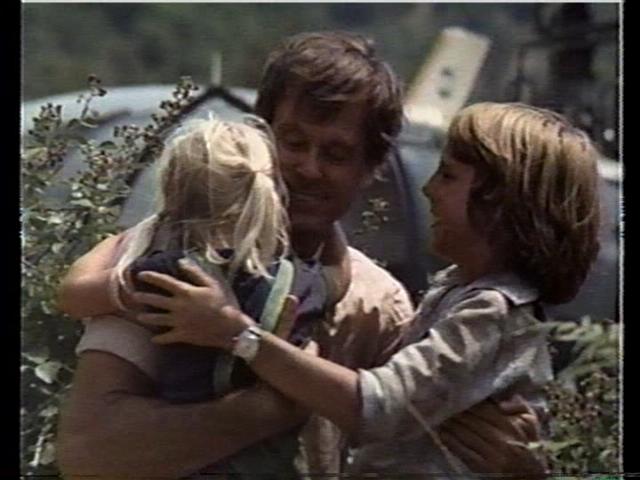
After all Coburn’s character went through and the great stuff from Culp here during the shootout, I found the wrap up to all this is a huge and total let down. I’m not sure Ellen actually says “thank you” to McAbe in their short exchange before she goes running back to Jonas. McAbe is handed a bottle of booze by the Greek police and carried off on a stretcher to be patched up.
I didn’t notice the first time I saw this, but noticed it when I capped it that Culp puts a little Hoby Gilman in Jonas Bracken as he’s got a six shooter strapped to his hip and tied down. How many multi-millionaire international businessmen do you know own a six shooter, let alone look comfortable enough wearing it? He never pulls the weapon at any point during the shootout, instead using a rifle but he obviously came prepared for this fight.
Despite the fact that Culp does nothing more than look worried throughout this whole flick, he looks soooo good doing it.
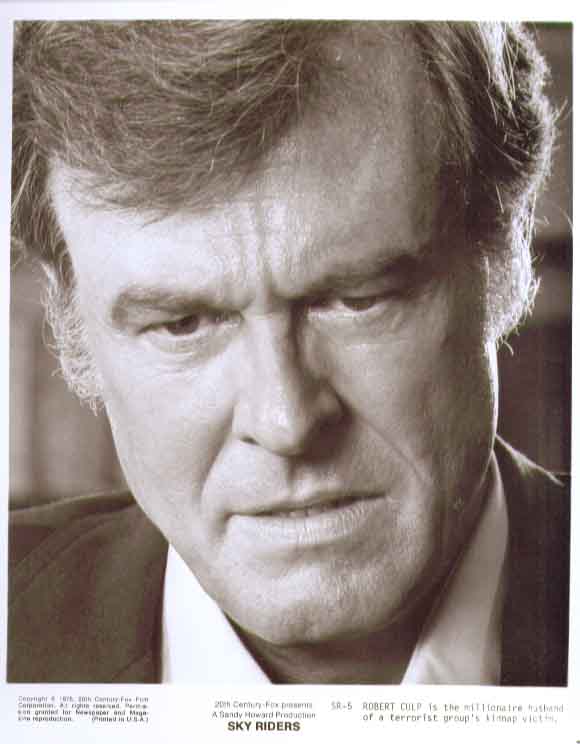
But I’ll say again I was glad his character got right into the fray of the rescue.
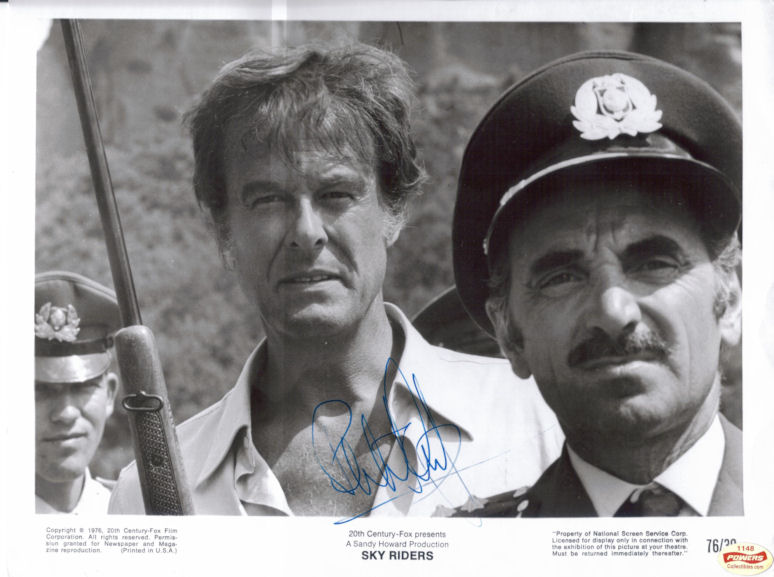
At the time this movie was released, Sky Riders didn’t cause too much of a stir. It was filmed entirely on location in Greece, but most critics passed over it, one going so far as to call it “a long jump off a short mountain.” Another critic noted that “Culp and Susannah York’s talents were largely wasted here.” If the movie was noted for anything at the time it was for the hang gliding sequences, which are very well done. (Hang gliding was a fairly new sport in 1976, having only been around for a few short years). Bill von Maurer of the Miami News called the film “perfectly mindless, perfectly harmless adventure movie,” and lamented that if “there had been more hang gliding sequences and less of the kidnapping, ‘Sky Riders’ could have been a lot better movie.”
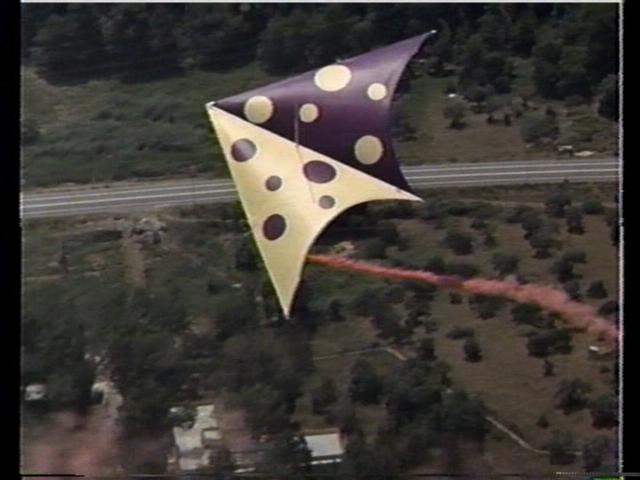
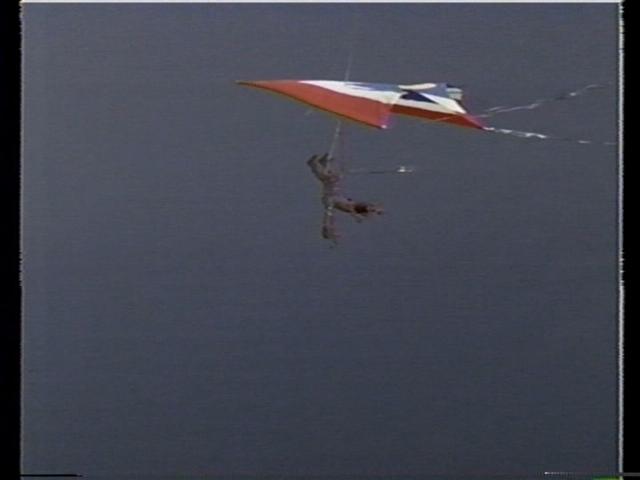
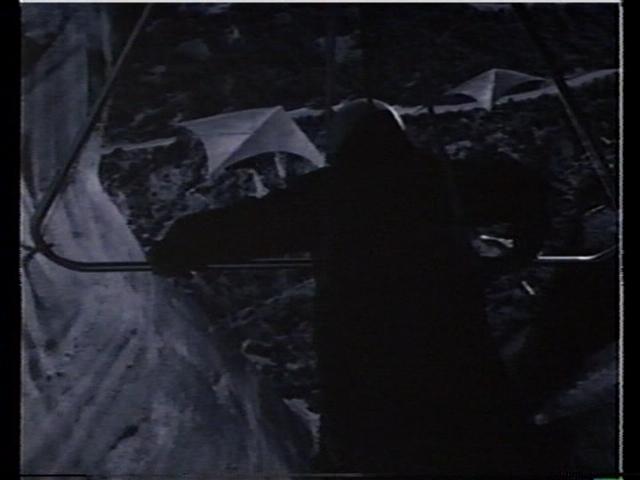
Quite possibly that was the intent of the screen writer, Hall Sprague. Mr. Sprague, who passed away in May of 2010 at the age of 79 (just two months after Robert Culp passed), was a sociologist and noted musician, playwright and screenwriter in the San Diego area who wrote several screen plays. Sky Riders was the only one that made it to the screen but according to Hall’s son Hall wasn’t happy with the final result, not liking the James Bond-ish spin that it ended up with. Mr. Sprague is credited with the story for the movie (others are credited with the screenplay) and is also listed as an associate producer of the film.
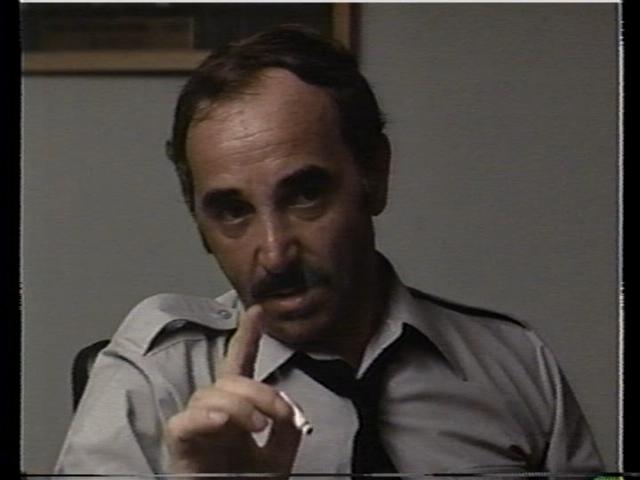
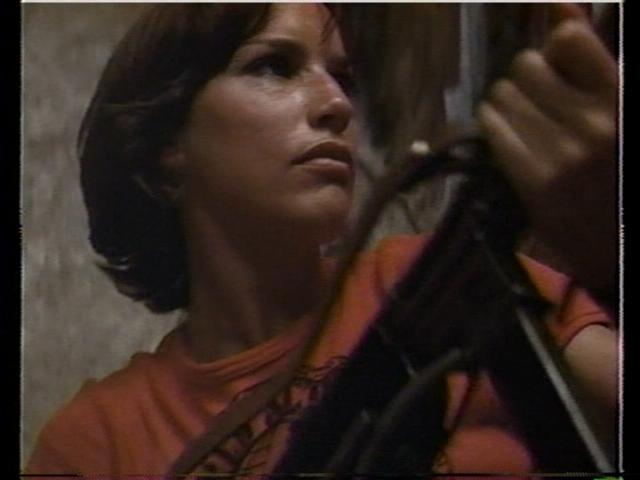
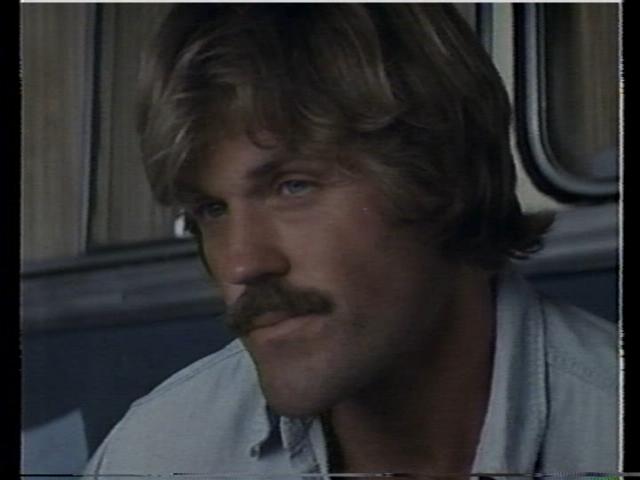
The cast included, of course, star James Coburn (The Great Escape, Our Man Flint), and Susannah York (They Shoot Horses Don’t They? Superman). Additional cast notes include international singing star Charles Aznavour as Inspector Nikolidis, iconic French model (and one time girlfriend of the Rolling Stones’ Brian Jones) Zouzou as the female terrorist that watches over Ellen and the children and John Beck as the lead glider pilot, Ben, who would later play Mark Graison on Dallas in the 1980s.
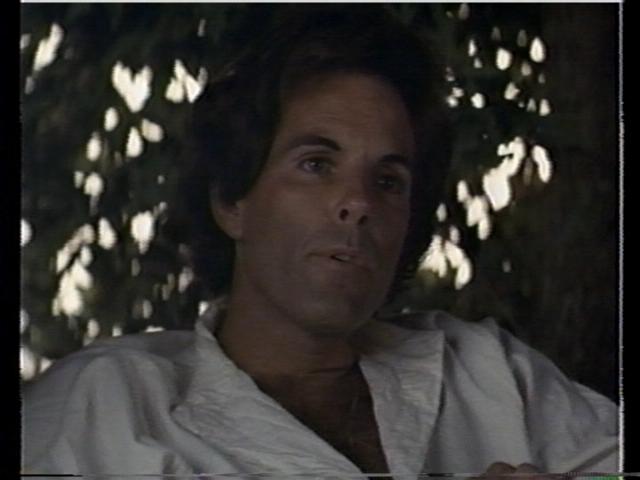 Also of note is Ernie F. Orsatti, as one of the glider pilots, Joe, (and as a stunt coordinator). Those familiar with The Greatest American Hero will recognize him as one of the hit men from the episode “The Hit Car.” Although Ernie has several acting credits to his name he is better known for his long career in Hollywood as a stuntman and stunt coordinator, having worked on such films as The Poseidon Adventure (he’s the one that does the fall into the glass ceiling as the ship is turning over), three of the Death Wish movies, Hoosiers, Fear and Loathing in Las Vegas, and dozens of television shows including LA Law, The Practice, Charmed, The Closer and more recently, Big Love.
Also of note is Ernie F. Orsatti, as one of the glider pilots, Joe, (and as a stunt coordinator). Those familiar with The Greatest American Hero will recognize him as one of the hit men from the episode “The Hit Car.” Although Ernie has several acting credits to his name he is better known for his long career in Hollywood as a stuntman and stunt coordinator, having worked on such films as The Poseidon Adventure (he’s the one that does the fall into the glass ceiling as the ship is turning over), three of the Death Wish movies, Hoosiers, Fear and Loathing in Las Vegas, and dozens of television shows including LA Law, The Practice, Charmed, The Closer and more recently, Big Love.
James Coburn’s chopper ride and a clip of a hang gilder landing in a herd of sheep were used in the opening title sequence to the 1980s tv series “The Fall Guy.”

Sky Riders was previously available from modcinema.com and was one of their top selling DVDs. My caps are based on that copy of the film. The movie was given an official release through Shout Factory! in 2011 (paired with another Coburn film “The Last Hard Men”) and can be seen in it’s original wide screen format.

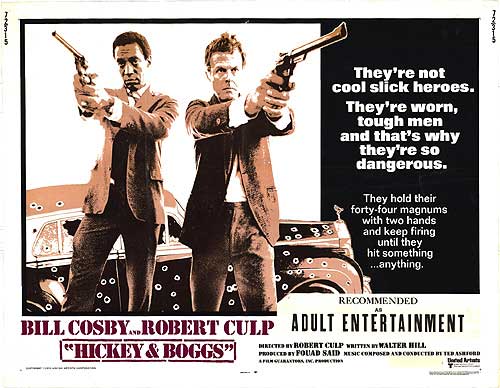
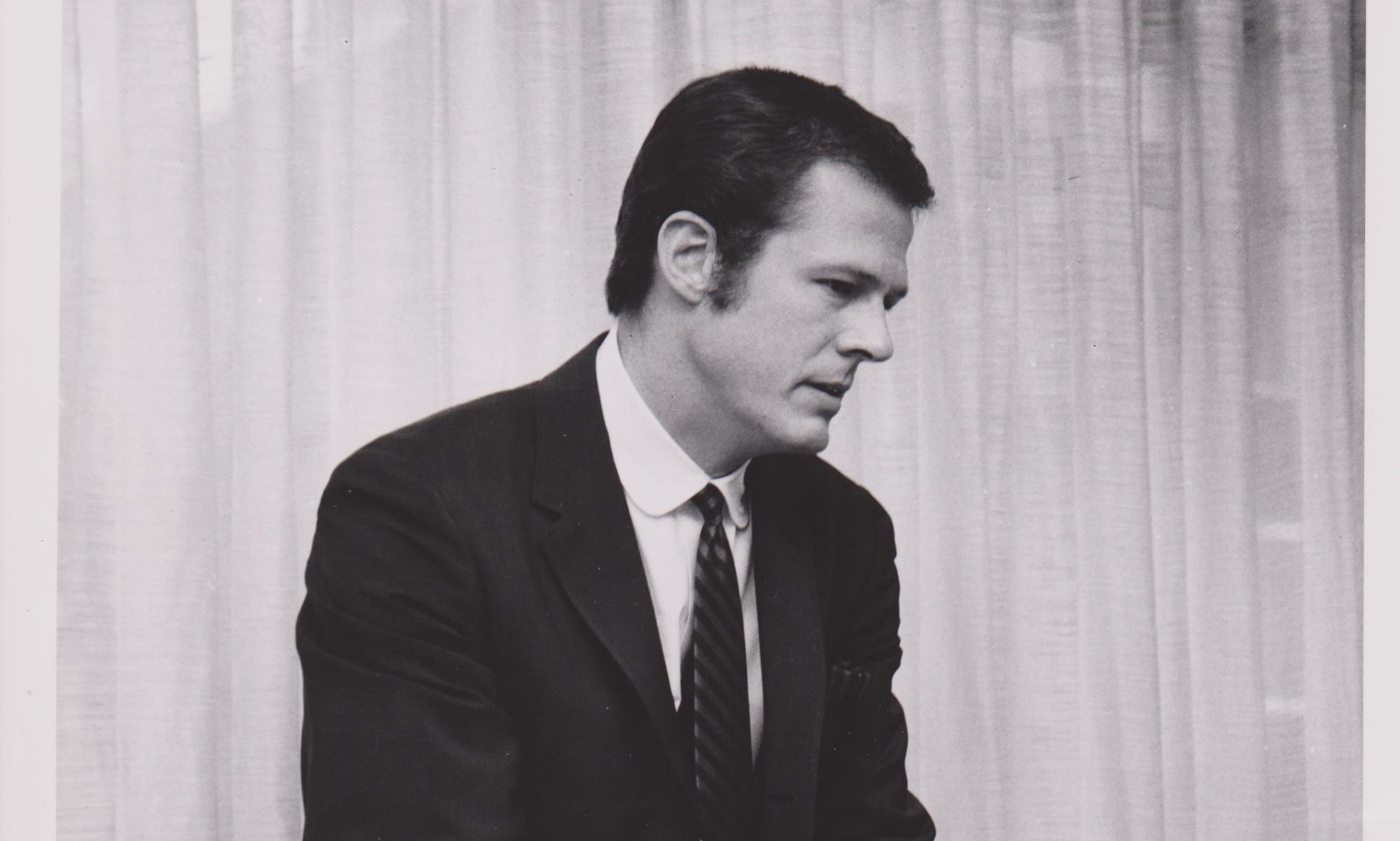


















 Also of note is Ernie F. Orsatti, as one of the glider pilots, Joe, (and as a stunt coordinator). Those familiar with The Greatest American Hero will recognize him as one of the hit men from the episode “The Hit Car.” Although Ernie has several acting credits to his name he is better known for his long career in Hollywood as a stuntman and stunt coordinator, having worked on such films as The Poseidon Adventure (he’s the one that does the fall into the glass ceiling as the ship is turning over), three of the Death Wish movies, Hoosiers, Fear and Loathing in Las Vegas, and dozens of television shows including LA Law, The Practice, Charmed, The Closer and more recently, Big Love.
Also of note is Ernie F. Orsatti, as one of the glider pilots, Joe, (and as a stunt coordinator). Those familiar with The Greatest American Hero will recognize him as one of the hit men from the episode “The Hit Car.” Although Ernie has several acting credits to his name he is better known for his long career in Hollywood as a stuntman and stunt coordinator, having worked on such films as The Poseidon Adventure (he’s the one that does the fall into the glass ceiling as the ship is turning over), three of the Death Wish movies, Hoosiers, Fear and Loathing in Las Vegas, and dozens of television shows including LA Law, The Practice, Charmed, The Closer and more recently, Big Love.


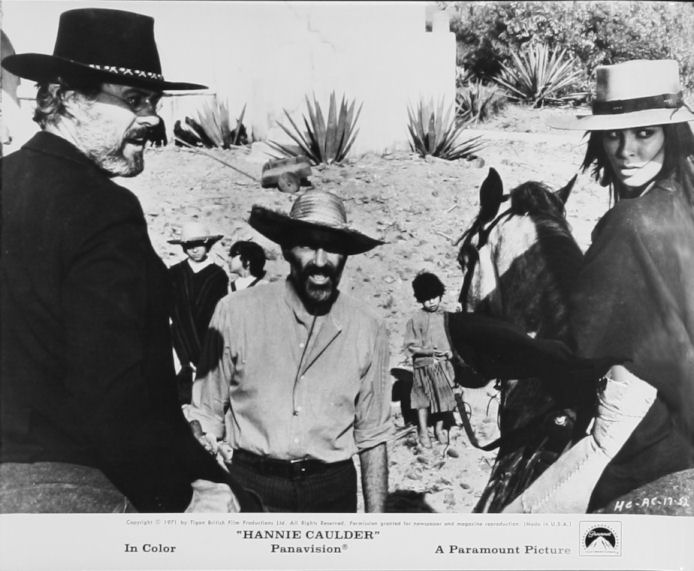


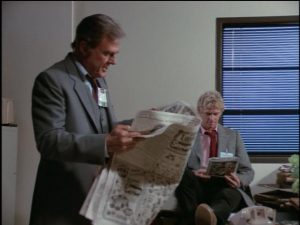 I didn’t start mining through the Google newspaper archive until I was doing research for the movie A Name for Evil and now I find myself getting lost looking back through old newspapers. (I’m a history buff anyway). Subsequently, I’ve been digging through looking for whatever I can for whatever Robert Culp movie or TV show I’m writing about next but since I only just started doing this, movies such as Inside Out (and Hannie Caulder) missed out initially.
I didn’t start mining through the Google newspaper archive until I was doing research for the movie A Name for Evil and now I find myself getting lost looking back through old newspapers. (I’m a history buff anyway). Subsequently, I’ve been digging through looking for whatever I can for whatever Robert Culp movie or TV show I’m writing about next but since I only just started doing this, movies such as Inside Out (and Hannie Caulder) missed out initially.